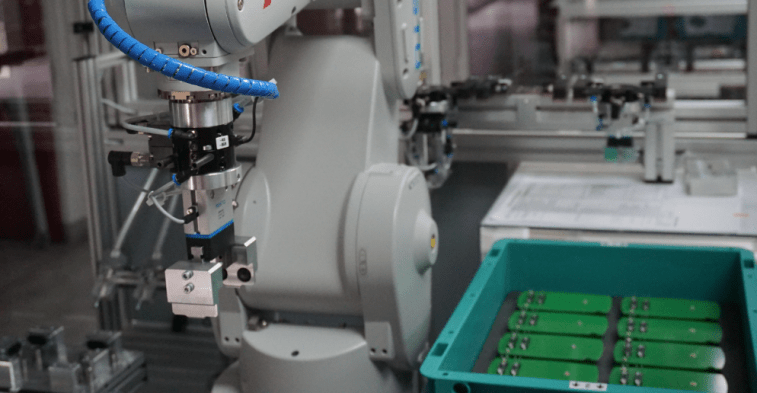8 Reasons Why The Packaging Process Should Be Automated
The packaging process is an important part of the supply chain. It ensures that products are packaged for shipping to customers and stores. The problem is that it’s time-consuming, costly, and difficult to do right. Automating the process can help solve all three of those problems and more. This article will discuss 8 compelling reasons why you should automate your packaging process.
Automation Saves Money
Automation saves money. Automated packaging means that a company does not need to hire people to do the work, and this can save thousands of dollars in wages each year.
It also avoids hiring mistakes or costly labor turnover costs, which can be expensive for any business. Take case erector manufacturers, for example, they can potentially save up to a million dollars every year by automating the packaging process. So just imagine: with automated packaging, there’s no need to worry about hiring extra personnel; plus all of these savings help lower your overhead expenses and cost you less money!
Automation Reduces Human Error
Any human worker is bound to make errors no matter their resume. One of the key benefits of automation is that it reduces human error. Machines do not have a mind, so they cannot make any mistakes on their own and complete tasks more accurately than humans can. The time, effort, and money that would be wasted on human error can instead be invested in other parts of the company. Human error is a huge problem in the business world, and it is imperative to eliminate this type of issue.
Packaging machines will always complete their tasks with accuracy because they cannot make any mistakes. This means there are no human errors occurring which speeds up production times drastically.
Since everything has been automated, nothing can go wrong anymore – unless you’re talking about hardware but that’s another conversation entirely.
Automation Is Time Efficient
Machines can take care of things at a faster rate than humans so it takes much less time for them to complete a process that would take hours or even days with human hands alone.
When employees don’t have to do tasks manually, they can focus on more important things- like the next step in the production process.
Automated systems provide a smoother workflow and reduce bottlenecks that could otherwise slow down productivity or cause quality control issues later on.
For example, the right software will reduce errors by simplifying processes through automation and data collection from across your supply chain – saving time, money, and hassle for everyone involved in the packaging process.
Automated Machines Are Easier To Maintain
Automated machinery doesn’t require much maintenance due to its design. Machines are created with a specific purpose in mind, and they don’t have many moving parts or components that break down easily.
Thus, the equipment for automated machines is less likely to break down than the machinery used by humans. Humans need time off and they can’t work 24/hours a day, this is not an issue with robots since their workloads don’t depend on human intervention. Robots also don’t need to take breaks or sleep.
Apart from this, automated machines are less likely to injure themselves since they have the ability to sense what’s around them and stop before any accidents happen. Human errors can lead to injuries when packaging products such as heavy boxes that could cause a personal injury if dropped on their foot for example. Automated machinery doesn’t make mistakes like these which means “packaging-related” accidents will be greatly reduced with automation; you don’t have to pay for hospital bills.
Automation Is Predictable
A human can’t be expected to do the same job consistently. Consistency is an important part of any process, and it isn’t possible for humans to perform tasks in exactly the same way every time. This difference makes your product more varied, which may not always be a good thing. Automation removes variation from your manufacturing process, giving you consistent results each time.
The automation process will produce a consistent quality of work that humans cannot achieve, such as making sure each box is sealed tightly before moving onto the next one so there are no leaks or spills in transit.
Automation Means Less Product Damage
Less product damage is one of the most important reasons why packaging should be automated. Product damages happen even before the products are shipped to customers due to improper handling or rough transportation. The only way to prevent this from happening in a manual setting would be double-checking and triple-checking every step which takes more time away from production line efficiency but automation would prevent this by doing the checking automatically once and for all.
Automation Means Better Customer Satisfaction
The automated packaging process will dramatically increase customer service and satisfaction. By eliminating the need for human error, the number of times customers have to wait can be drastically reduced. This means that you’ll be able to offer better communication with your prospects since they won’t feel like their needs are being ignored because there is no one available to answer them.
Customers also like their products coming from an automated system because they know that there will be no human error involved in packing them up correctly; this builds trust between customer and company. For manufacturers who want to sell globally, customers outside North America are wary about packaged goods being tampered with if people pack them manually.
Automation Means Lower Environmental Impact
One of the best reasons to consider automating packaging is that it will lead to less environmental impact. This means there are fewer emissions being pushed into the air or water because the machine is using less energy to operate. With an automated system, the operator doesn’t have to do as much physically and thus will be able to use a smaller footprint of space in their facility when they’re not operating it.
Another reason why automating packaging can lead to lower environmental impact is that there are fewer emissions being released into the atmosphere over time because machines don’t need any maintenance or replacement parts like humans would if they were doing this task themselves on a daily basis.
The automation process is predictable, which means you can be sure that your machines will work as intended. This also saves time and money in the long run because automated machinery requires less maintenance than human-driven equipment. Plus, when it comes to customers, they appreciate not having to wait on hold for hours or talk with someone who doesn’t know what they’re talking about! By implementing a degree of automation into your production line, you’ll have happier customers and more efficient operations without sacrificing quality.





Leave a Reply